Simone Barlaam, a Fighting Fish in Search of Tokyo 2020
Simone Barlaam lives in Milan with his mother and younger sister, but often comes to New York to visit his father, the journalist Riccardo Barlaam, correspondent of Il Sole 24 Ore. Simone, world champion in charge in the 50 and 100 meters freestyle (category S9), confesses that in this city it is not easy to find an Olympic pool to keep up with his training. Because he cannot stop, otherwise "it's like shootin on your own foot: it's harder to get back".
"Twice world champion, four tim es European champion, world record holder in 50 free style and European record in the 100 free style S9 category ..." his very detailed page on Wikipedia reads.
But did you write it? We ask. "No! In fact I do not know who created it "he mocks. On that page, there are listed his problems and his successes. We asked Simone what's in the middle, what force of will is necessary to win a destiny that has been to him more like a strong upstream since the very first hours of his life.
A destiny "against the tide"
Simone was born with a deformation of the hip, a coxa vara in medical terms, and a congenital hypoplasia of the right femur that prevents the limb from developing like the other. But problems starter even before he arrived into the world when the doctors, in a pre-birth maneuver to turn it from the podalic position in which he was in utero, broke the femur that, still nobody knew, was very fragile.
During Simone's childhood, thirteen surgical operations followed and so an infectionfor which he could have lost his leg. Professor Raphael Seringe and Professor Philippe Wicart from the Saint-Vincent-de-Paul Children's Hospital in Paris saved it. "They really did a miracle," he says.
Meanwhile, Simone swims. It is the only sport that he can do to maintain muscle tone without risking fractures because practiced in the absence of body weight. "I always swam to stay in shape. I had also tried paratriathlon, but I was too short in running and biking ". Actually, Simone in 2014 participates in the FITRI Paratriatlon Italian Championships in Riccione and gets off with a nice bronze medal. "For me it was above all my first contact with the Paralympic sport" he recalls.
He understands that his strength is swimming. He starts looking online and finds the site of the FINP, the Italian Paralytic Swimming Federation. "I contacted them and started training with the national FINP trainer Massimiliano "Max" Tosin and other Paralympic athletes".
The competitive turning point
That meeting with Max and his team took place at the right time because Simone was almost tired of swimming. "At the age of ten I thought about quitting, I no longer felt any motivation to continue in my provincial team. On the other side, Max and especially the other guys, including some who were already world champions, inspired me. I thought: then you can also go fast, even with disability."
Simone begins to train seriously. Now he can swim up to 18 hours a week, when he is close to important races. How important is your mindset? "Very important, especially in swimming where you have to starr at a line at the bottom of the pool for 5 or 6 hours a day. It helps me thinking about my goals because if you don't have the right motivation you do not get up at 4 in the morning to swim. And this applies to everyone. "
But has Simone ever dreamed of going to the Olympics? To overcome that line that separates a para-atleths from athletes? "For now my goal is to go to the Paralympics and do them well, then for the Olympics it's a question of timing. If I ever get to make competitive times with Olympic athletes then I could go. "
Among the athletes whom Simone admires the most is the former Australian Paralympic Swimming Champion Matthew Cowdrey, "I recently broke the world record he had at the London Olympics" Simone adds with pride. "Then Michael Phelps, even if it is obvious to name him because he is the idol of all the swimmers. And I also admire Federico Morlacchi, one of the strongest Italian Paralympic athletes. He's in my same team and he was for me like a big brother: he took me under his wing and taught me to train well. "
Paratleti, a world to discover
Simone then talks about the cultural barriers that should be overcome when it comes to athletes and disabilities. For the young swimmer, Australia, Great Britain and Holland are the "coolest" countries when it comes to disability and the Paralympic world. "For example, in Australia, where I spent one year while in high school, at the Commonwealth games, able-bodied and disabled athletes compete together: same competition, same crowd, same pools. So the public can see all of us. "
In Milan, Simone trains with both able-bodied and disabled athletes. "The relationship with all of them is excellent, in the end it is about the human aspect, not about disability." Simone also notes that since London 2012, also in Italy, there are signs of broader awareness towards disabled athletes. "But they don't have to be seen with pity.' Simone would like people to see first of all the athlete, his efforts and determination to reach certain levels even with a disability. In short, he wants people to see beyond the disability. "There are many beautiful stories among Paralympic athletes and it is a shame that they don't get to be known. Paralympic sport is a normal sport with additions ". His father Riccardo in part did it by portraying Simone and his teammates in the documentary I Pesci Combattenti, The Fighting Fish".
The support of the family matters a lot, obviously, "but also to surround itself in general with positive people. And then the commitment: if you really want something you have to work hard and this is not only true in sport "explains Simone who already thinks of enrolling in the university and studying mechanical engineering to design race prosthetics.
"I know that not even in their best dreams my parents would have imagined that this chubby boy, who broke his femur every two steps, would become a world champion".






























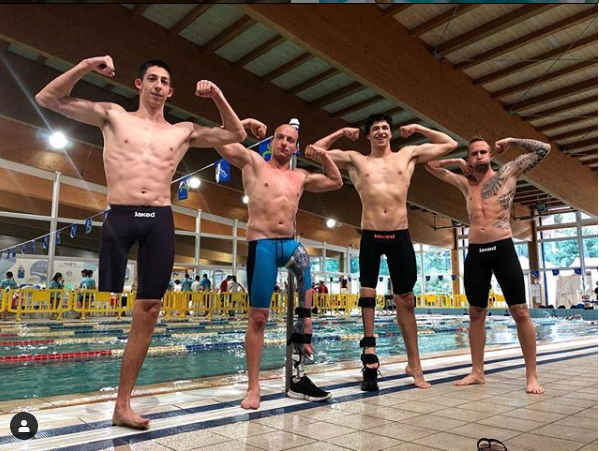
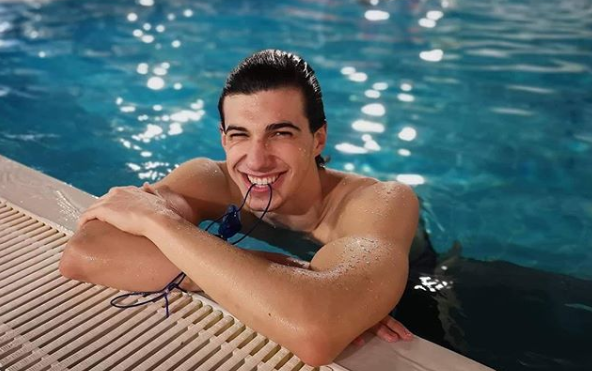
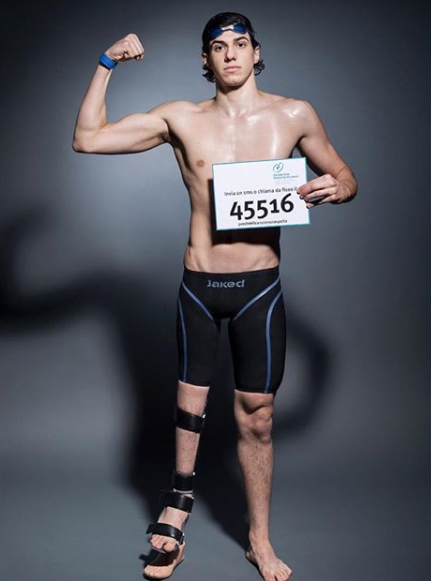
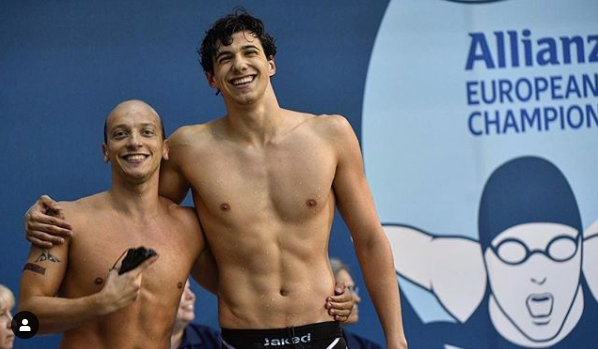
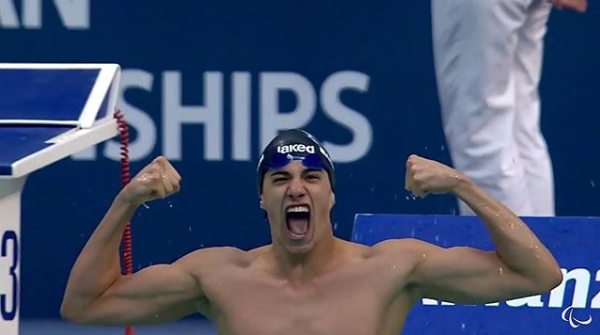






i-Italy
Facebook
Google+
This work may not be reproduced, in whole or in part, without prior written permission.
Questo lavoro non può essere riprodotto, in tutto o in parte, senza permesso scritto.